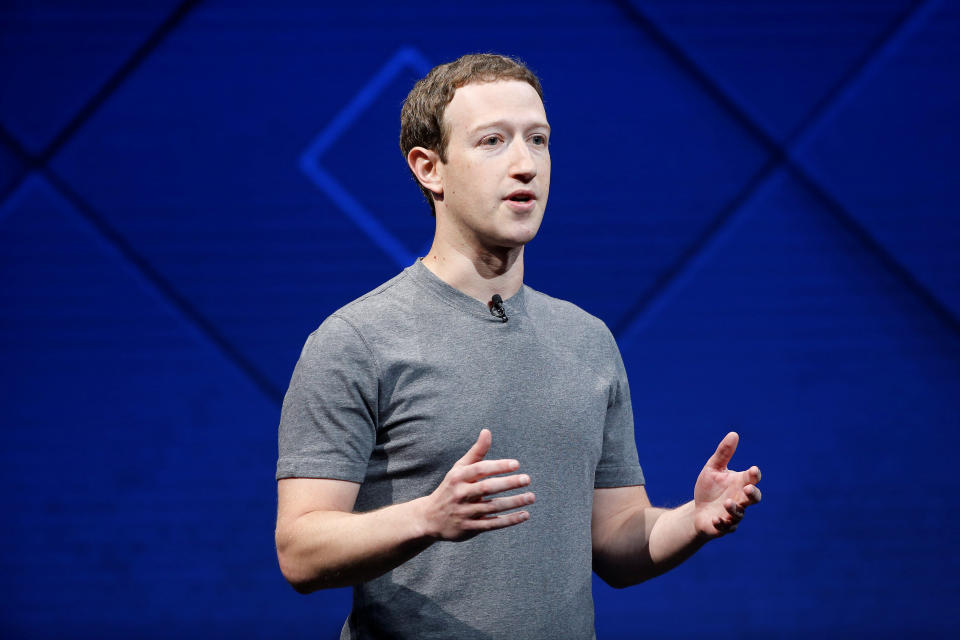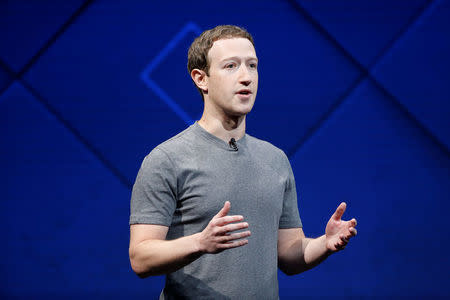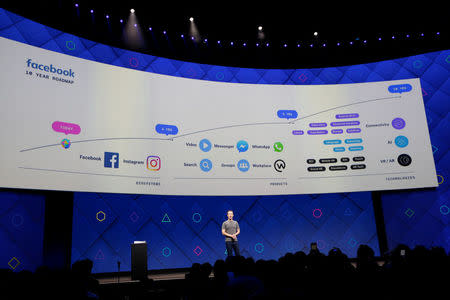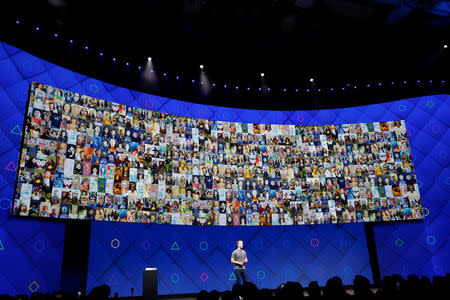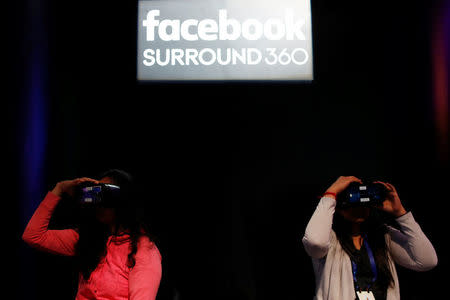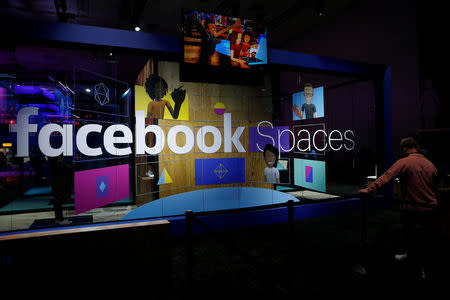Facebook CEO vows to help prevent repeat of Cleveland murder posting
By David Ingram SAN JOSE, Calif. (Reuters) - Facebook Inc Chief Executive Mark Zuckerberg pledged on Tuesday that his company would do all it could to prevent postings of incidents such as Sunday's fatal shooting in Cleveland, which was visible on the social media site for two hours. Speaking at Facebook's annual conference for software developers, Zuckerberg took time out of a keynote address about an augmented reality project to express sympathy to the friends and family of the shooting victim, Robert Godwin Sr. The suspected shooter, Steve Stephens, fatally shot himself after a brief pursuit by Pennsylvania State Police officers on Tuesday, ending a two-day nationwide manhunt, police said. For Facebook, the video of the shooting death was the latest in a series of high-profile killings, assaults and other violent incidents to be shown either live or after the fact on the world's largest social media network. Facebook, which makes money primarily by selling advertising that appears on people's news feeds, relies largely on its 1.9 billion users to report posts that violate its terms of service, and it employs thousands of workers to examine those reports. In a statement on Monday, the company said the video of the shooting death uploaded by Stephens had been online too long and that it was launching a review of how objectionable material is reported and taken down. Zuckerberg told the audience of developers that another top priority for the company is augmented reality, a technology that allows people with smartphones to immerse themselves in a game, fantasy or other animated reality. Augmented reality hit the mainstream in the United States last July, when Niantic Inc released its Pokemon Go mobile game, where players use phones to capture animated characters that appear in real locations. Facebook plans to work with developers this year to come up with more augmented reality games and other uses, Zuckerberg said. For example, he said people would use the technology to leave a virtual note for a friend at a bar, or to find virtual street art on a wall that in real life is blank. "This isn't just about finding a Pokemon in a one-block radius," Zuckerberg said. Eventually, he said, people would use augmented reality on eyewear, although he did not give any details about possible Facebook hardware. In 2014, Facebook acquired its Oculus virtual reality goggles unit for $2 billion, although that division is a long way from making a mass-market product or contributing significantly to the company's earnings. Facebook announced immediate changes to its Messenger app, which has 1.2 billion people on it. The company added a "discover" tab where people can chat with companies or find nearby businesses. (Reporting by David Ingram; Additional reporting by Aishwarya Venugopal; Editing by Dan Grebler, G Crosse and Bill Rigby)

